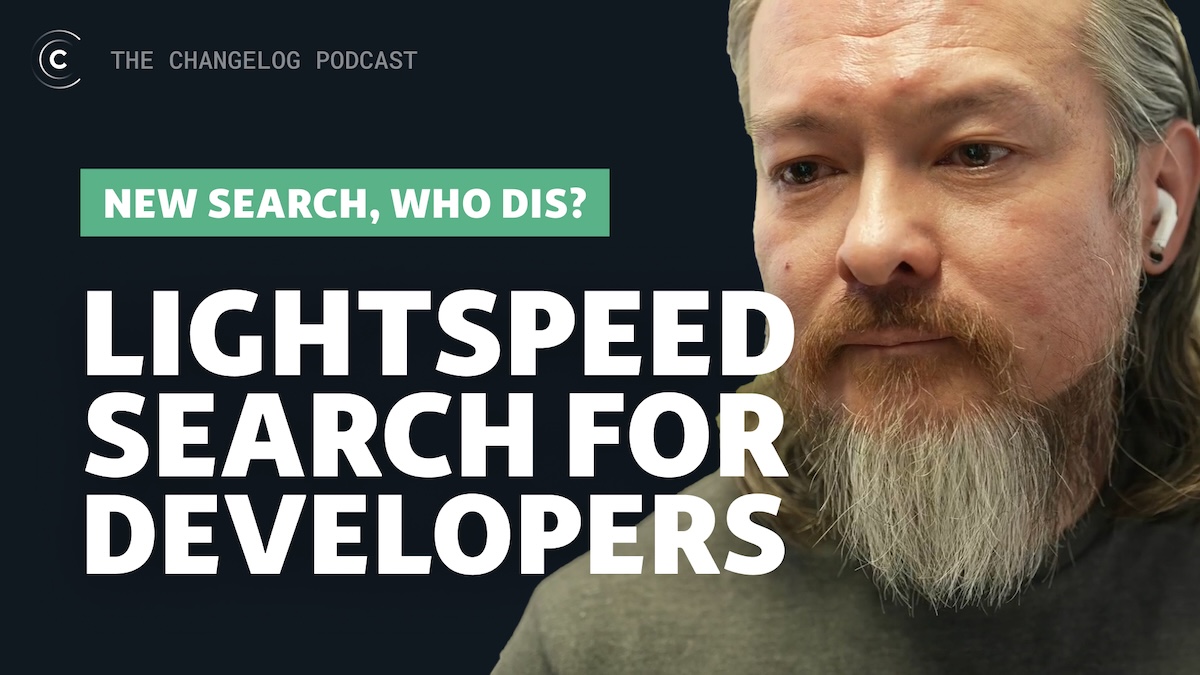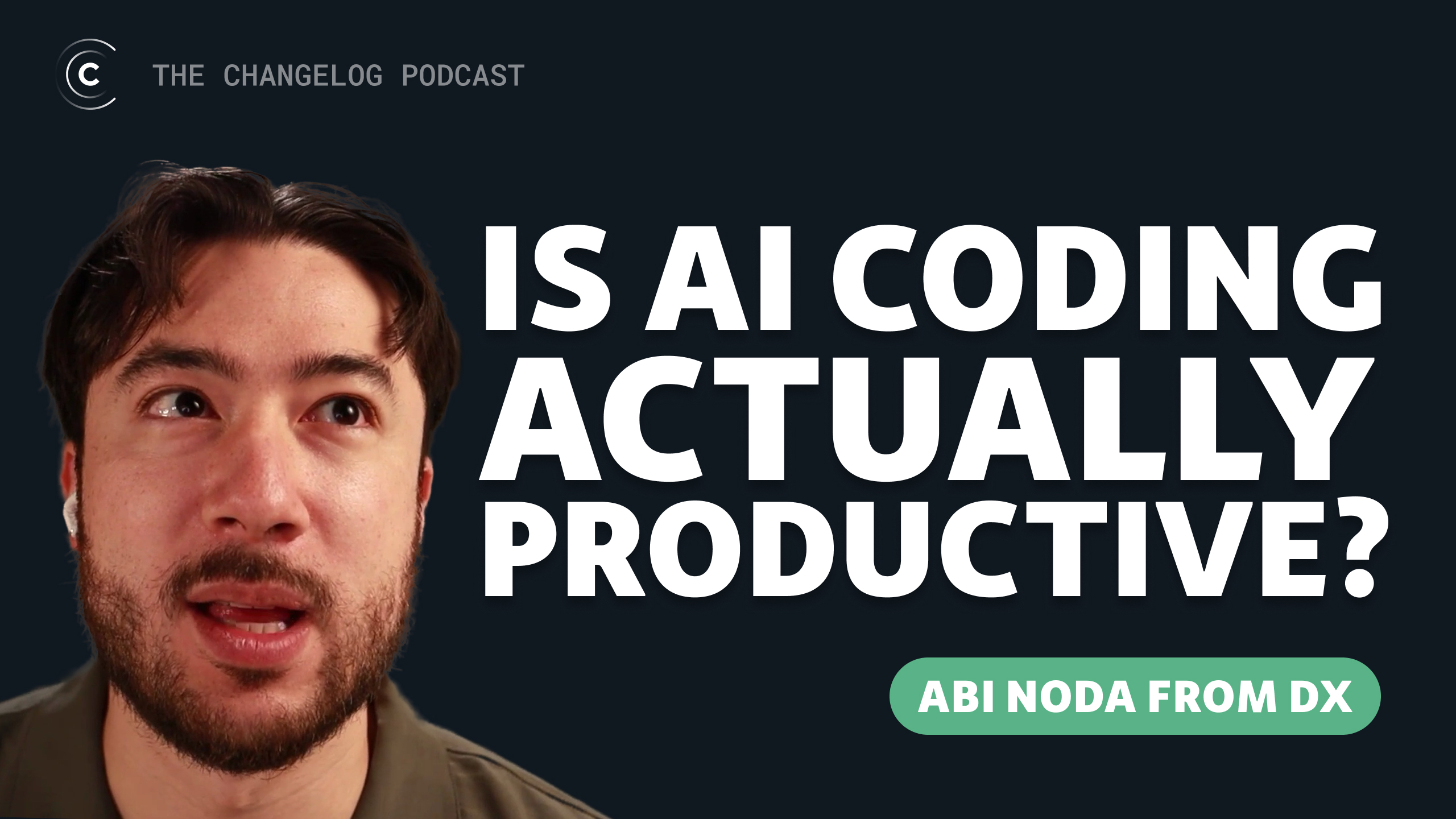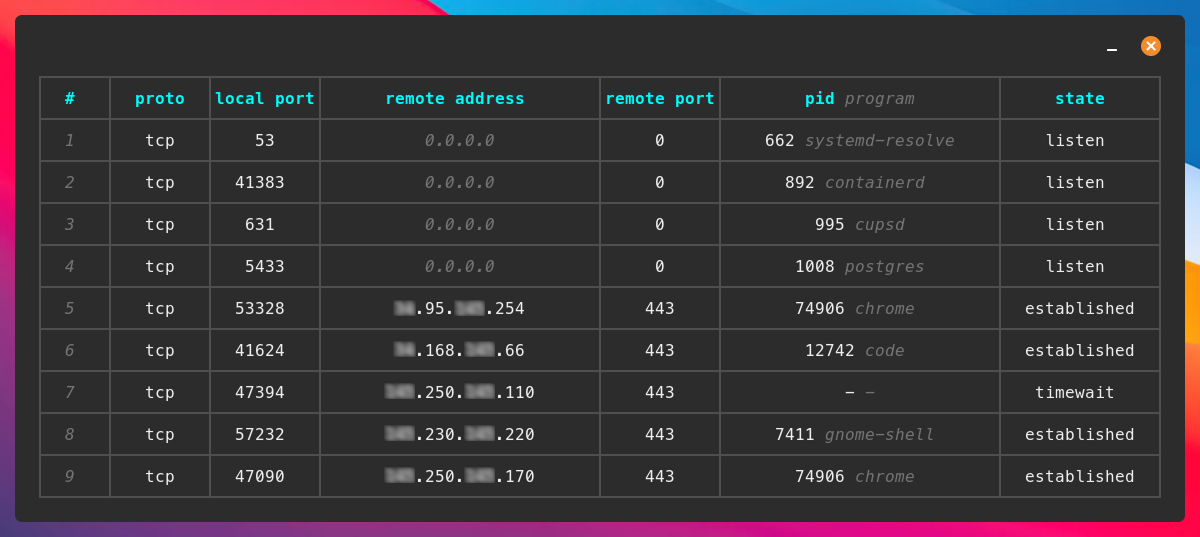Changelog News
Developer news worth your attention
Jerod here! 👋
At risk of unleashing your green monster, I have to report that researchers in Japan have achieved a world record in data transmission speed at 1.21 Gigawatts 1.02 Petabits per second over 1,123 miles.
Just how fast is that?! It’s more than 3.5 million times faster than the average internet speed (~300Mbps) in the US right now. Jealous yet?
Ok, let’s get into the news.
🎧 Lightspeed search built for devs
We talk with Don MacKinnon, Co-founder and CTO of Searchcraft—a lightspeed search engine built in Rust. We dig into the future of search, how it blends vector embeddings with classic ranking, and what it takes to build developer-friendly, production-grade search from the ground up. 🎥 VIDEO
🥘 An app can be a home-cooked meal
This post by Robin Sloan was originally penned in Feburary, 2020, but I’m sharing it now because this new wave of vibe coding tools makes it even more true now than when he wrote it:
I made a messaging app for, and with, my family. It is ruthlessly simple; we love it; no one else will ever use it. I wanted to share a few notes about how and why I made it, both to (a) offer a nudge to anyone else considering a similar project, and (b) suggest something a little larger about software.
That “something a little larger about software” that he’s referring to, is that the “learn to code” movement was mostly about market value, but the “learn to cook” movement almost never is. Robin suggests that if we think of coding more like cooking, we can use software to make our little world a better place.
This messaging app I built for, and with, my family, it won’t change unless we want it to change. There will be no sudden redesign, no flood of ads, no pivot to chase a userbase inscrutable to us. It might go away at some point, but that will be our decision. What is this feeling? Independence? Security? Sovereignty?
Is it simply … the feeling of being home?
From one perspective, AI coding tools are scary because they threaten our market value. From a different perspective, AI coding tools unlock a world of opportunity to create home-cooked software never before possible (or worth the effort). Let’s get cookin’!
🤯 Google hires Windsurf CEO
If you thought OpenAI was buying Windsurf for boo koo bucks, you were once right, but now you’re wrong. That deal is off. Instead, Google is hiring CEO Varun Mohan, cofounder Douglas Chen, and “some of Windsurf’s R&D employees” for their DeepMind team. Not an acquisition. Just hiring them for, yes, boo koo bucks.
This seems like a great deal for Google (cleaner than an acquisition in almost every way), a great deal for Windsurf’s founders (they got a large portion of those bucks), but a raw deal for the remaining Windsurf employees who have equity and/or options in the company.
Google isn’t alone. Microsoft and Meta have made similar moves recently. Be careful out there, especially if you’re considering non-cash compensation at an AI-related startup, which is quickly becoming the only kind of startup that exists.
📉 It’s “too late” for Intel
It’s difficult to fathom how fast (and hard) Intel has fallen from the top of the semiconductor world. Here’s a report from the mouth of new CEO, Lip-Bu Tan:
On training, I think it is too late for us… Twenty, 30 years ago, we were really the leader. Now I think the world has changed. We are not in the top 10 semiconductor companies.
Yikes. They’ve already laid off thousands of employees around the world and their costs continue to explode due to high R&D spending and they faced a $16 billion loss in Q3 last year. To put their fall in perspective, there was a day when Intel considering acquiring Nvidia for $20 billion. Now Nvidia’s market cap is 40x the size of Intel’s…
💰 Depot build autoscaling for everyone
Thanks to Depot for sponsoring Changelog News
Depot just launched general availability for build autoscaling, which dynamically scales your remote build capacity based on workload demand. Whether you’re pushing one commit or a hundred, your builds stay fast—without managing any infrastructure. And it’s available today on all paid plans.
Here’s Founder and CEO Kyle Gailbrath:
When we first launched Depot, our goal was to make Docker image builds exponentially faster. Why? Because we experienced the absolute drudgery of waiting for container builds locally and in CI. The modern day equivalent of watching paint dry because saving and loading layer cache over networks negated all performance benefits of caching, and building multi-platform images required emulation, bringing builds to a crawl. So, we built the solution we had always wanted: a fast, shareable, and reliable container build service that could be used from any existing CI workflow or anywhere you were using “docker build”.
Learn more at Depot.dev.
🙊 Stop forcing AI tools on your engineers
Anton Zaides, imploring people in leadership roles to stop forcing AI on their engineers:
I’m definitely NOT saying that we should ignore those tools. There ARE engineers who are old-fashioned and resist without giving it a real chance. You do have a responsibility to help your team adapt to the new world (and it IS a new world).
But there are so many better ways to do it
I couldn’t agree more! Here’s a few better ways that Anton suggests:
- Give time to explore
- Share what worked in your org
- Give people time to adopt it their way
This jives with Abi Noda’s response when I asked him how he’s approaching AI adoption at DX in last week’s Friends (link 👇). Abi referenced Netflix as an example of an organization that employees super smart engineers and has been super quiet about AI adoption because they’re just letting their super smart engineers make super smart decisions about AI just like they tend to make super smart decisions about other tooling choices. Seems like a super smart way to go about it.
🏃♂️ Ten years of running every day, visualized
Adrien Friggeri went for a run on July 11, 2015. And every single day since. It started like many streaks start, with small ambitions:
I headed out on a run on a Tuesday, then did another one the next day, and the day after, and… I took the Friday off. When I woke up on July 11, 2015 I remember thinking I could have done 4 days in a row, so I set out to try and do that. 4 days turned into a week, then a month, then two, then six, then a year, and here I am, ten years later.
He didn’t merely run every day, he tracked his running (via Strava) and documented his runs, creating compelling visualizations of his annual mileage, workout activity by time of day, treadmill vs outdoor distributions, pace, heart zone rates, weather conditions, states / countries / continents visited… you name it. On the overall impact of running, Adrien says:
Running has changed my life, and I hope I’ll still keep this going in another decade. I’ve been extremely lucky to have had the support of my wonderful wife Molly throughout this journey, and I couldn’t have done it without her patience, how many times has she heard me say I’ll be back in a few! in the mornings.
An impressive achievement and an inspiring set of visualizations that are so good, I almost went for a run, myself. Then I remembered how much I hate it…
🎙️ Measuring the actual impact of AI coding
Abi Noda from DX is back to share some cold, hard data on just how productive AI coding tools are actually making developers. Teaser: the productivity increase isn’t as high as we expected. We also discuss Jevons paradox, AI agents as extensions of humans, which tools are winning in the enterprise, how development budgets are changing, and more. 🎥 VIDEO
🧛 Vercel acquires NuxtLabs
Vercel has acquired the company that maintains Nuxt, which means it now employees and/or financially supports the teams behind: Next.js, Turborepo, Svelte, shacdn, and now Nuxt. Not sure how I feel about that…
Here’s Nuxt core team member, Daniel Roe, writing about the future of Nuxt:
Vercel’s investment in the Nuxt team means that we will have more time to invest in making Nuxt better and empowering our community. It’s a strong endorsement of our vision — and will help us pursue it more sustainably.
🦊 Firefox is fine. The people running it are not
Liam Proven says Mozilla’s management is a bug, not a feature:
Mozilla’s leadership is directionless and flailing because it’s never had to do, or be, anything else. It’s never needed to know how to make a profit, because it never had to make a profit. It’s no wonder it has no real direction or vision or clue: it never needed them. It’s role-playing being a business.
🤩 A human-friendly alternative to netstat
netstat is a powerful tool for digging into your Linux/macOS machine’s networking stack. But like many power tools, it’s not the most user-friendly thing in the world. Enter “somo”, which provides a nice table view, fitlerable / sortable output, interactive killing of processes, and more.
📐 Don’t forget your (un)ordered list
- Introducing OpenCLI
- SVGs that feel like GIFs
- Specification Engineering
- Death by a thousand slops
- Astro is a developer’s f***ing dream
- A moon phase tracker rendered in ASCII art
- Firefox is fine. The people running it are not
- Claude Code is now a Bun single-file executable
- Kanban board to manage your AI coding agents
- Throwing AI at developers won’t fix their problems
- Use Claude Code on mobile and web with Claude Code UI
- systemd has been a complete, utter, unmitigated success
- Adding a feature because ChatGPT incorrectly thinks it exists
- The uncertain future of coding careers and why I’m still hopeful
- Why I used to prefer permissive licenses and now favor copyleft
- Bros-in-law create fiber ISP to compete against Comcast in Michigan
That’s the news for now, but if you missed last week’s edition, perhaps let me read it to you while lighting off fireworks. 🎥
We have some great episodes coming up this week:
- Wednesday: Adam does a founders talk with Retool’s David Hsu
- Friday: Nick Nisi joins us to discuss the news
Have a great week, forward this to a friend who might dig it, and I’ll talk to you again real soon. 💚
–Jerod


